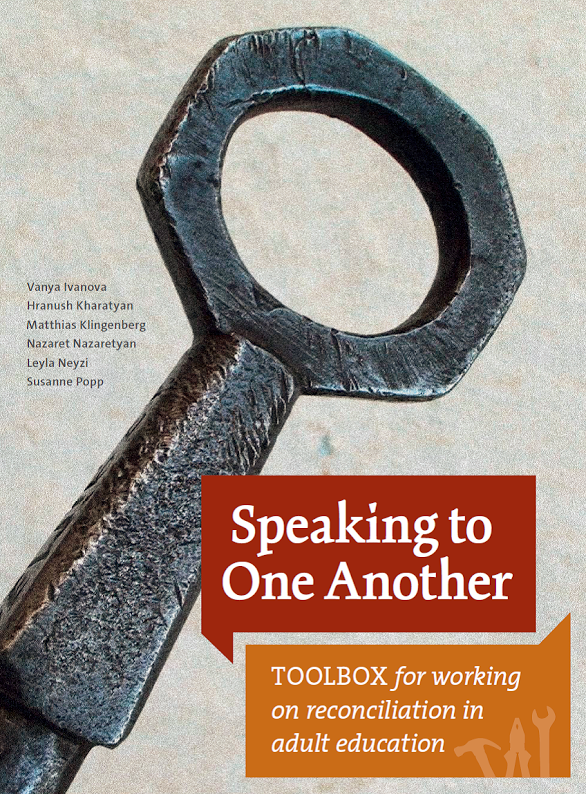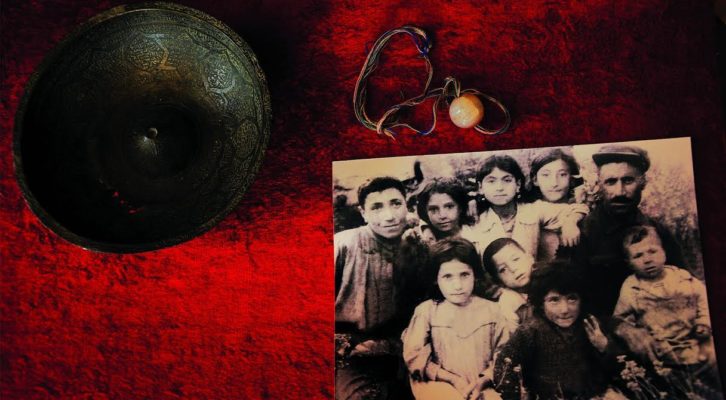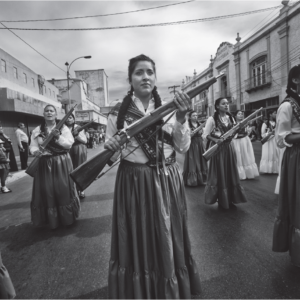From August 2009 to December 2016 DVV International and its local partners conducted a Turkish-Armenian dialogue project with 3 phases: Learning to Listen from August 2009 – February 2011; Speaking to One Another from June 2011 – February 2013 and Acting Together from May 2015 – December 2016. The project was financed by the German Federal Foreign Office. In this learning process of all actors involved, we strengthen some of the principles of our work in the field of adult education and reconciliation work and questioned others. In a nutshell we would like to point out the following five ones:
- Bringing people together always pushes things in a positive direction.
- Big history needs to be supplemented by history from below. People’s history has to have the same significance as political history.
- Learning is not only an important tool for understanding the world better but also for strengthening one’s own personal psychological health. Learning is therefore not only positive in a cognitive sense (gaining knowledge), it also allows people to reach higher levels of empathy, balance, and stability. All these are important preconditions for being a responsible citizen.
- Societies are a “puzzle” of individuals living according to a certain, widely agreed convention. The educated (lifelong) learner contributes in a positive way to a democratic and free society of active citizens.
- Reconciliation projects should facilitate dialogue on conflictive issues and not ignore that a conflict exists or avoid conflictive situations.
Additional learning for us also as initiators of this dealing with so sensitive past project and process brought insights in several project management directions, here we would like to briefly present just three of them: foresighted risk management, low threshold approaches and neutrality.
Foresighted risk management
We have to be aware that we designed our projects in a certain political and societal situation, but this may also change, sometimes for the better, but sometimes for the worse. We need to take into account that the current situation we are living in and within which we are implementing the project or activity may be not a stable one. We need to take into account the possibility of change, especially change for the worse. A “political climate change” can radically alter all the assumptions on which our intervention is based and – and that is the most important thing – endanger the attainment of our objectives and the psychological and physical integrity of our participants, the project team, and last but not least, ourselves.
What can be said freely today can be forbidden and punished with imprisonment the day after. It sounds naïve but do not risk the lives and integrity of the people you work with. Today’s euphoria may be tomorrow’s depression.

Low threshold approaches
When we talk about ‘low threshold’ in the context of reconciliation projects we primarily mean project approaches that provide an easy entry-point for our participants. In situations where relations between the parties are entrenched it may be extremely difficult for the representatives of the different conflict groups to enter into a dialogue oriented towards conflict resolution. In such cases it is often much easier to establish contact with each other via an unproblematic topic or activity, rather than directly talking about the conflict, its origin, and ways of resolving it. A lesson learned from our specific project is that ‘doing things together’ can very effectively lower barriers and reduce the fear of contact. This often works much better than debating even a supposedly unproblematic topic.
Neutrality
It is often underlined that neutrality is a key value for actors in conflict resolution. However, this is not possible or even productive in all conflicts. How could a conflict manager ignore the fact of the holocaust in a German-Israeli dialogue project after the Second World War. Such a project is simply unthinkable. We have similar situations in all contexts where genocide is involved or where the factual truth unequivocally assigns perpetrator and victim roles. And it is exactly here that it gets very difficult. It may be easier with cases where genocide has been largely acknowledged, but it can become extremely difficult in cases where the unequivocal truth is ignored by some of the parties involved or others indirectly involved in the conflict and the process of its resolution. What understanding of the conflict does a person taking a neutral position have? This person is actively or implicitly stating that the solution to the conflict should be a balanced one, meaning that the resolution of the conflict should be a compromise between the conflicting parties. But can there be a compromise on genocide? Neutrality in this case undermines the authority of the conflict mediator and will hinder real reconciliation. In some conflicts an acknowledgement of the factual truth is a precondition for reconciliation.
We used various learning methods throughout the project which we consider being enriching and successful for the purposes of the rapprochement process, two of them are: interviewing (eye-)witnesses and travelling exhibitions.
Interviewing (eye-)witnesses
When dealing with controversial issues from the recent past a key source of information are the (eye-)witnesses. The preservation of the personal stories and experiences of people who took part in or merely witnessed the events of the past under debate is enriching in various senses. Today, more and more professional historians are exploring and coming to value the method of oral history, thus exploiting opportunities to bring new perspectives to bear on our understanding of past events. In this way, the recorded interviews themselves become new historical documents. Although sometimes considered manipulative or one-sided due to their subjective character, the story of an (eye-)witness can serve as a complementary source adding a piece to the puzzle in order to better understand the recent past. Being personal it is quicker to touch the heart of the listener/interviewer/reader and at the same time transforms the grand narrative into a very concrete one. It opens up questions connected with responsibility, choices, and blame. It can heal or open wounds.
Traveling exhibitions
A traveling exhibition is a method used in several DVV International history projects with the main aim of raising awareness and reflecting on controversial issues in a broader public setting. Being a traveling exhibition means that it stops off at several places, which requires work and good preparation. One option is for the exhibits to travel physically, another is to print them in the different countries, if possible. The exhibition can travel internationally, but also within a certain country. It can use static objects, posters, pictures, but it can also be interactive, providing an opportunity for visitors to take on different roles and shift from being an observer to an actor by giving his/her opinion on a question, for example. Such types of settings provide an opportunity for networking and questioning individual and collective memory, forming a space for intergenerational dialogue and a multi perspectivity of meanings.
Matthias Klingenberg (born 1972 in Lower Saxony, Germany) studied medieval and recent history at the University of Heidelberg, Germany. He specialized in the early history of the German Democratic Republic. The last 15 years he has been working in the education and development sector for different German organizations. For almost a decade, he has been an active part of the DVV International history network; he has initiated and been involved in history projects in Central Asia, the Caucasus, Turkey and beyond. Currently he is the regional director of DVV International for the Caucasus, Turkey and South-East-Europe based in Tbilisi, Georgia.
Vanya Ivanova graduated in history at Sofia University with a specialization in the contemporary history of the Balkans. She was the manager of the history project at DVV International South Eastern Europe from 2004-2009, working in the field of interactive methods of handling and teaching modern history in the Balkans. Since then she has been engaged in various other projects and conferences implemented by DVV International history network. She holds a PhD in migration studies from the New Bulgarian University’s Centre for European Refugees Migration and Ethnic Studies (CERMES).
The above text is taken from a publication called “Speaking To One Another: TOOLBOX for working on reconciliation and adult education”. You can download it from here: https://www.dvv-international.de/fileadmin/files/Inhalte_Bilder_und_Dokumente/News/2017/Speaking_to_One_Another_WEB3.pdf







